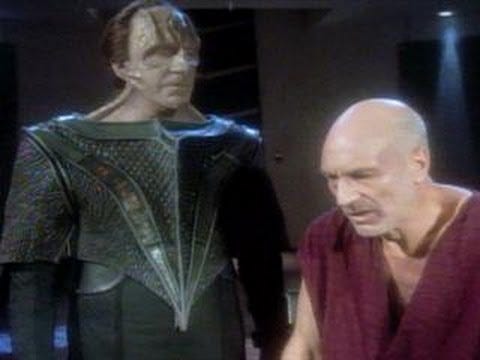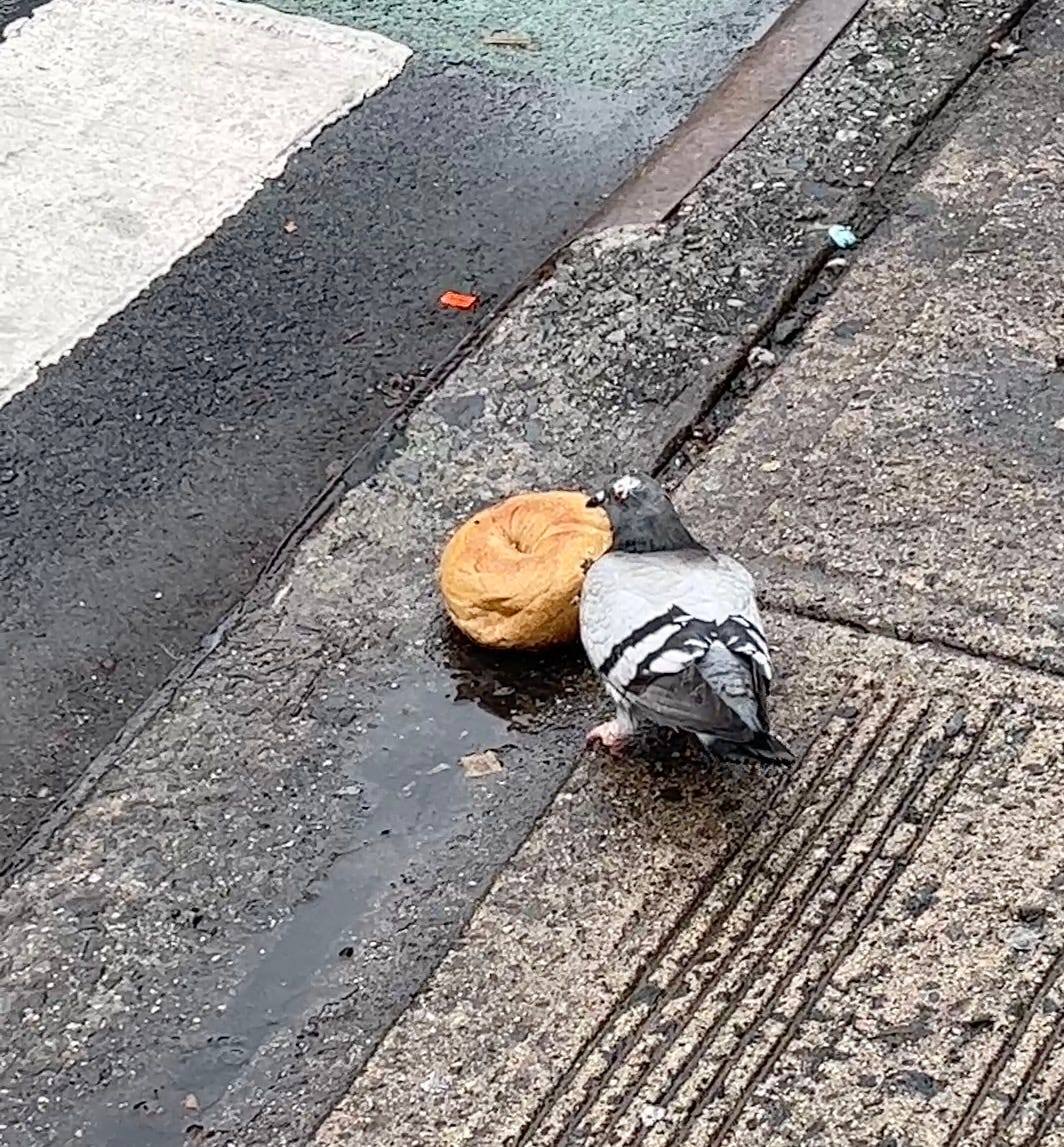There are FOUR lights, Elon
How quickly free speech absolutism starts to resemble totalitarianism
Programming Note: This is the second installment of The Klonickles. I’m still figuring out how it’s all going to work, but for now it looks like it will be a weekly newsletter focused on online speech and law & technology plus a crazy Kate post-script (see below) for paid subscribers. Thanks for reading and thanks double for pay subscribing. The more you do, the more I have the freedom to research and write.
First, hold this in your head as you read
There’s a classic meme from Star Trek The Next Generation where Captain Jean Luc Picard (Patrick Stewart) is being tortured by opposing forces who are shining four bright lights into his face. The Lead Bad Guy (Gul Madred) keeps telling Picard to say there are FIVE lights and each time he asks, Picard refuses, iconically screaming after much duress:
If you want to be all well-read about it, the Four Lights scene is supposedly an homage to George Orwell’s 1984 and the moment in which the protagonist, Winston, is asked how many fingers his captor is holding up:
'How many fingers, Winston?'
'Four! Stop it, stop it! How can you go on? Four! Four!'
'How many fingers, Winston?'
'Five! Five! Five!'
'No, Winston, that is no use. You are lying. You still think there are four. How many fingers, please?'
'Four! five! Four! Anything you like. Only stop it, stop the pain!
These references, of course, are not about truth so much as they are actually about power. And they are not so much about fiction as they are about allegory, which is why despite being from roughly 50 to 70 years ago, they are, as we will see, so relevant to current events.
Second, some background
In mid-December Elon Musk banned a number of high-profile journalists from Twitter and got a lot of high-profile backlash as a result. To understand how Musk justified this, let me run you through a quick timeline of events:
A well-known Twitter account called @ElonJet used to tweet the publicly available location of Elon Musk’s private jet. This has been generally controversial because of the potential safety risks and privacy violations. (At one point Elon tried to buy off the kid who ran the account but apparently Musk thought the kid’s demand of $50,000 was too high so he paid $44B to buy the entire platform, ban the account and destroy the digital public sphere, but I digress.)
At first when he took over, Musk tweeted that his commitment to free speech was so absolute that he would leave the @ElonJet account up!
But then apparently some gonzo followed Musk and his kid, X@#69!!!, from an airport and Musk had had enough and banned @ElonJet for doxxing, stating: “Real-time posting of someone else’s location violates doxxing policy, but delayed posting of locations are ok”
Shortly after the @ElonJet Twitter account was banned, so were any accounts that linked to it or ANY third-party link to such information. This apparently included a number of journalists who had tweeted on the events taking and linked to the primary source accounts, or even — in the case of CNN’s Donie O’Sullivan — a link to a link of a third-party location tracker. (HT Oliver Darcy who chronicled this whole stupid saga beautifully).
Twitter Private Information and Media Policy now states this:
With this key new interpretation:
All of this was a terrible set of actions for freedom of expression — banning journalists? Did Elon miss the day in Free Speech Absolutism Class when it taught about the Press Clause?— but the reason it is particularly interesting is because of what happened after the accounts were suspended and what was demanded to bring them back.
“You do, however, have a choice . . .”
In order to get back on Twitter, those whose accounts that were banned were told they had to delete the Tweet that had violated Twitter’s rules which automatically forfeited any right to appeal.
In other words, in order to get back on Twitter you had to state that you violated the rules.
But what if there aren’t five lights?
In Donie O’Sullivan’s case, the Tweet that had caused his account to be suspended was, as he told me, an “image screenshot of the Mastodon Twitter account to show what it posted [in order] to be suspended,” and “an archive dot org link to the mastodon account.”
So, in order for there to be a violation of the Twitter Private Information and Media Policy that included “links to 3rd-party URL(s)” O’Sullivan’s 3rd-party link to a 3rd-party link would have to count.
I’m not a lawyer, but This interpretation of this rule is illogical on its face, nonsensical in practice, and would quickly suck the whole internet into a censored vortex.
For example, can I post a link to a Google Search of “ElonJet Mastodon Account”? Presumably no. How about a link to a Bing Search of “Google Search of ElonJet Mastodon Account?” Also, likely no.
The option of deleting a one-time post in order to resume your banned account isn’t new on Twitter (it is different if there have been multiple violations). But of course these aren’t just random users, these are journalists. And they’re tasked with truthfully reporting on the nature of the speech platform and the enforcement of rules and free expression, so falsely admitting guilt is sub-optimal. Not just for these individuals as professionals, but for freedom of expression, information gathering, and truth, generally.
And to loop this all back to the beginning, it should remind you of the essential relationship between truth and power. If you’re not a Star Trek or Orwell fan, you might be better convinced by Michel Foucault:
Truth is a thing of this world: it is produced only by virtue of multiple forms of constraint. And it induces regular effects of power. Each society has its regime of truth, its “general politics” of truth: that is, the types of discourse which it accepts and makes function as true; the mechanisms and instances which enable one to distinguish true and false statements, the means by which each is sanctioned; the techniques and procedures accorded value in the acquisition of truth; the status of those who are charged with saying what counts as true.1
Which is all to say: Gul Medrad, Elon Musk — they’re no so different. And to the extent you believe in reality, perhaps the latter is considerably more scary.
The KK Post Script
I’ll be writing a KKPS at the end of each newsletter which will be more personal reflections inspired by whatever art-cooking-foraging-television-law-travel-movie-animal-politics-textile-journalism-science-painting-nature-history-garden-intellectual adventures are happening in my life.
Because I am (according to Scott Shapiro) a dialogical thinker, it will also include recapitulations of interesting conversations I have, old stories I might want to tell, and pictures or daily events I want to share. I think it will be a pretty substantial and hopefully whimsical and interesting addendum, so please consider paying to subscribe.
Oh, and there will also be a regular image of my blind-deaf Cocker Spaniel, Nena.
For January KKPS will be free gratis. After that it will be paid subscriber only.
There is a special thank you footer and secret Nena picture for those who have already paid in today’s post!
What I’m Reading
This piece by Florence G’SELL of Sciences Po in Lawfare on the French reaction to Musk and Twitter. The U.S. has a bad habit of forgetting the EU exists. And the US and the EU have a bad habit of forgetting the majority world — a term I’ve adopted thanks to being educated by Chinmayi Arun — exists. G’SELL’s piece is the first part of that forgetting, but I’m eager to read more on how other nations will go after Twitter’s bad actions.
The latest installment of Kashmir Hill’s reporting in the New York Times on Google Drive versus Apple iCloud legal and governance approaches to false positive reports in automatic scanning of Child Sexual Abuse Material (CSAM). If I had to make a prediction I do not think that Google will continue to maintain this Good Samaritan line and will take the E2EE tact of Apple before the end of 2023.
Want by Joan Larkin. A poem that is as delicious to read as it is resonate.
What I’m Making
Beef tallow from fat I cut off the rump roast from Christmas.
This little crochet frog to keep my grandma company in the nursing home when I can’t be there.
A list of seeds to start in 8 weeks.
What I’m Watching
Jeremy Brett’s quintessential portrayal of Sherlock Holmes.
The new prequel of The Witcher: Blood Origin which Ryan Calo assures me is excellent.
New York City in 2023’s answer to the Pizza Rat: Bagel Pigeon!
Conversation of the Day
I chatted for a few minutes yesterday on the phone with
who has recently come to Substack and is in the process of convincing me of its merits. One of the first things I had to admit, which was funny to me as someone more than a decade junior to him, was how out of practice I am at writing directly into a content management system.“I just send f***ing Word or Google Docs to editors now, Ben! I don’t know how to blog anymore!”
“Yeah, well, just imagine it’s LiveJournal,” he teased back.
So here I am. I showed up in boots. I’m back to my roots, and I have to admit this has been pretty fun to write, which is a great sign for its continued existence.
Power/Knowledge: Selected Interviews and Other Writings 1972-1977 By Michel Foucault, Ed. Colin Gordon (1980) at 131. Full text available here: https://monoskop.org/images/5/5d/Foucault_Michel_Power_Knowledge_Selected_Interviews_and_Other_Writings_1972-1977.pdf













Thanks for doing this. I'm still going through major ILOF withdrawal.
Just the Nena pics make it worthwhile. Thanks